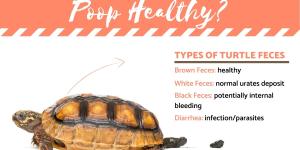What Is Noah Syndrome?


Noah syndrome is a variant of Diogenes syndrome, a condition which leads to compulsive hoarding. Instead of boxes of magazines, the hoarder maintains too many animals in their home. While many of us might have a cluttered home, Noah syndrome is something more severe. The animal hoarding is obsessive and compulsive, leading to behavior which is detrimental to animal and pet owner alike. Having too many animals in a home, especially a home which is over-cluttered, can lead to hygiene issues and neglect of the animal's welfare.
A person with Noah syndrome is not purposefully abusive to the animals. It is an unfortunate and complicated neurological condition which has links to many other health issues. Keep reading AnimalWised to find out more about what is Noah syndrome including causes, symptoms and treatment.
Causes of Noah syndrome
Animal breeders will have a lot of animals at their premises. If they are a responsible breeder they will have sufficient space and have their required amenities. If someone is an animal hoarder, they will often keep animals all over the house, often in cramped conditions or with too many animals being maintained together.
When animal hoarding occurs, the welfare of the animals comes into jeopardy. Issues include ensuring there is sufficient food for all the animals, accumulation of animal waste which can lead to disease and general neglect for the animals' physical and emotional wellbeing. Having too many animals in the home makes it impossible to meet the five freedoms of animal welfare.
Despite being used synonymously, there is a difference between animal hoarding[1] in general and Noah syndrome in particular. They do share many characteristics. General animal hoarding is also a compulsive need to collect and store a large amount of animals on a person's property. The reasons for this are most commonly psychological and they include:
- Obsessive compulsive disorder: the sufferer feels compelled, not inclined, to collect animals in their home.
- Addiction: collecting animals becomes an addictive behavior which elicits a response in the owner and repeats patterns of unhealthy behavior.
- Delusion: the owner is unaware of the negative effects of keeping so many animals.
- Dementia: similar to delusion in that the owner may not understand the extent of their animal hoarding as it is caused by a degenerative brain condition.
This last cause leads us to the key difference in Noah syndrome. As Diogenes syndrome is a condition which affects older people, it is sometimes known as senile senior squalor syndrome. The person affected by it does not always understand the debilitating conditions in which they live. They neglect both themselves and their animals, withdraw from society and often have dramatic personality changes.
There is also evidence to support that some of those who suffer from Diogenes syndrome or its Noah syndrome variant have been predisposed due to loneliness and/or psychological stress[2]. Noah syndrome is still likely to be in conjunction with other medical conditions.
Noah syndrome is the animal hoarding aspect of Diogenes syndrome which specifies it as different from other types of animal hoarding. This is even if many of the consequences are the same. It has been linked to frontal lobe damage[3], which is common in older people who suffer from dementia. Often the changes in a person are uncharacteristic and one can develop the condition even if they were not prone to hoarding in the past.
In Noah syndrome, the collection of animals is not necessarily due to love for the animals (although it is often the case). Their compulsion to collect and store them means they often treat the animals as they would inanimate objects they might also store. They do no always have an emotional bond and this is key to the type of jeopardy which Noah syndrome can lead to in pets.
Some specific symptoms of Noah syndrome include:
- Compulsively accumulate large numbers of animals
- Do not allow others to enter the home
- Lack of shame over squalid living environment
- Collects other things compulsively
- Large amount of animal excrement around the home
- Possession of animals with numerous health and behavioral problems
- Lack of basic amenities for animals
- Lack of admission of problem
Looking out for these symptoms will help one diagnose Noah syndrome. Unfortunately, due to the social withdrawal of those suffering from Noah syndrome, it can be difficult to detect. Their secrecy might seem duplicitous, but it is likely they are being just as deceitful to themselves due to self-delusion.

Consequences of Noah syndrome on animals
There is a different definition of animal hoarding compared to those who simply care for many animals. Animal hoarding is a form of animal abuse. If someone decides to care for a lot of animals and manages to provide all of their needs in terms of health and quality of life, then this is not animal hoarding. The abuse those with Noah syndrome inflict on the animals includes:
- Malnourishment: as the animals are both numerous and often treated as objects, feeding them sufficiently to avoid malnutrition can be difficult. The mental state of a sufferer of Noah syndrome can mean they don't understand the extent of the problem. They may not even think they need to feed their pets.
- Trauma: while it is unlikely those with Noah syndrome will inflict purposeful psychological or physical abuse on the animals, the extent of their neglect can have similar consequences. Animals need love and care. If they are not given this and are also starved, it can have dire consequences on their behavior. Even if they are rescued from this situation, it can provide difficulty in rehoming.
- Disease: the neglect can lead to significant deterioration in health. Many animals living in squalid and overcrowded conditions can not only contract diseases such as skin conditions, parasitical infections and digestive issues, but they pass these on to the other animals. Those suffering from Noah syndrome often don't see the animal's condition and won't take them to the vet.
- Aggressive behavior: neglected and abused animals will often engage in aggression towards other animals. They will become wild and will fight for dominance or simply to eat. They may try and escape, but their behavior will likely become unpredictable.
Learn more about how to heal neglected animals with our guide to helping an abused dog trust again.
Consequences of Noah syndrome on sufferer
While this treatment of animals is inhumane and unacceptable, it is important to remember that it is often caused by either mental health problems or degenerative neurological functioning. This diminishes the responsibility of the sufferer, even if the situation is untenable. Often the consequences of Noah syndrome are just as detrimental to the sufferer. They include:
- Unsanitary conditions: the amount of fecal matter a large number of pets in one home can be extraordinary. Those with Noah syndrome often won't even think to clean and sanitize the home. Excrement can lead to many different diseases, especially the widespread proliferation of a number of bacteria. This can contaminate food and even places where people sleep. If the neurological condition is debilitating enough, then the sufferer may not even think to receive treatment for themselves, especially if they fear they will be found out.
- Animal disease: many disease can be transferred from animal to human, including rabies, hookworm and many more.
- Affect on dependents: if someone with Noah syndrome lives with dependents then this can mean the neglect spreads to them. This means if there is an older person, a child or someone with physical or mental incapacitation, they will not be able to look after themselves. The person with Noah syndrome will not be able to meet their responsibilities and dependents will likely suffer.

Treatment of Noah syndrome
The treatment of Noah syndrome depends on the reason for its onset. If the reason is a mental health disorder, then the appropriate treatment for this condition is needed. This will usually involve therapy, medication or a combination of both. It will also depend on the severity of the case of Noah syndrome. As the person will often shut themselves off from the rest of society, then they will need to be resocialized, a process which can be very difficult and not always successful. The patterned behavior needs to be changed, something which is difficult for many.
Practically, the animals will need to be assessed and rehoused if possible. Their medical issues will need to be addressed and their behavioral issues considered. Unfortunately, the rehabilitation can be a difficult one. As often those with Noah syndrome don't understand their neglect, they can feel like their animals are loved and healthy. This separation can be incredibly stressful. This is because they often have a primary relationship wit animals, not humans. This can make them suspicious of anyone trying to provide assistance[4].
If the reason for developing Noah syndrome is brain deterioration or dementia, then the prognosis is not always very good. It may be the start of managing the condition and finding ways to improve quality of life as degeneration continues. Those who are severe will often be hospitalized or institutionalized in a care home facility. Relapse for those in these circumstances is high. In most cases, the care will turn palliative.
Those who are provided with care as promptly as possible are likely to have a better quality of life. This will usually involve support from professionals and/or family members.

If you want to read similar articles to What Is Noah Syndrome?, we recommend you visit our Basic care category.
1. Patronek, G. J. (2006). Animal hoarding: Its roots and recognition. Retrieved from:
http://veterinarymedicine.dvm360.com/animal-hoarding-its-roots-and-recognition
2. Saldarriaga-Cantillo, A., & Rivas Nieto, J. C. (2015). Noah syndrome: a variant of Diogenes syndrome accompanied by animal hoarding practices. Journal of elder abuse & neglect, 27(3), 270–275. https://doi.org/10.1080/08946566.2014.978518
3. Orrell, M. W., & Sahakian, B. J. (1991). Dementia of frontal lobe type1. Psychological Medicine, 21(3), 553-556.
https://doi.org/10.1017/S0033291700022170
4. Williams, B. (2018). Animal Hoarding. In M. R. Day, G. McCarthy & J. J. Fitzpatrick (Eds.), Self-Neglect in Older Adults (pp. 57–68). Springer Publishing Company, New York. ISBN: 9780826140821.
https://www.springerpub.com/self-neglect-in-older-adults-9780826140821.html







